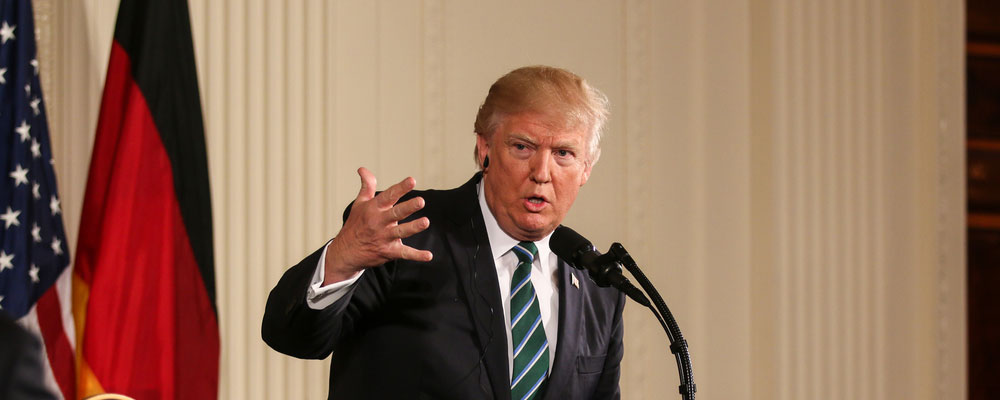CAPE TOWN, South Africa — I just came off a call on a cheap local cellphone running Android software. I’m drinking a Valpré fizzy water, made by Coca-Cola. I’m about to go shopping for furniture for my beach house in a rented Ford.
South Africa is full of products made by U.S. companies. So were Switzerland and Germany, where I’ve just come from.
It’s true that most of these products were made in the countries where they are sold. But a portion of every sale ends up in the bank accounts of the U.S. companies who invented them and own their copyright.
However, none of this money is counted toward the value of U.S. “exports.” That exalted category — of so much concern to the Trump administration — is reserved for physical goods sold abroad or services provided by companies physically located in the U.S.
By contrast, income from sales of U.S.-branded goods made by foreign subsidiaries or licensees — essentially, intellectual property — is excluded.
Given the immense importance of such income flows, why isn’t it considered part of U.S. exports? What happens if we include it?
The answer is shocking … and illustrates the danger to your investments of President Donald Trump’s rapidly escalating trade wars.
Makers vs. Takers
The U.S.’ conventional trade balance — calculated as above — shows a U.S. annual deficit of more than $330 billion with China and about $550 billion with the rest of the world.
Recently published research by Deutsche Bank AG measured the local sales of U.S. multinational companies abroad. When they added the $90 billion of Chinese income to U.S. firms operating there, the U.S. trade deficit turned into a surplus.
When this sort of corporate foreign income is included, the U.S. also runs sales surpluses with Mexico and Canada. The same is true at the global level.
This shouldn’t surprise anyone, but it’s rarely mentioned when the media talks about trade. As a result, millions of Americans are falling for a dangerous and destructive argument about the need for tariffs and other trade barriers.
Here’s why.
First, in today’s global economy, it makes no sense to manufacture goods and then ship them across the world. Almost every country has the capacity to manufacture basic consumer goods. Bigger economies like China can manufacture bigger-ticket items like cars as well. In both cases, the cost of shipping complete products from the U.S. makes it cheaper for U.S. firms to make and sell them abroad.
Second, much of the U.S. economy’s foreign revenue comes from licensing of patents and brand names. When Apple’s foreign subsidiaries make and sell iPhones abroad, the revenue that accrues to this kind of intellectual property goes straight to the U.S. company. The same is true of U.S. companies like Coca-Cola that license their products to independent foreign companies.
In effect, U.S. multinationals have gone from being makers of goods to takers of fees for intellectual property.
In both cases, huge amounts of money flow back to the U.S. — just as they would if physical goods had been exported. It just doesn’t get counted as income from trade.
Whose Economy Is It Anyway?
One reason people focus on conventional trade balances is because they have an impact on U.S. workers. When U.S. firms make goods here and export them, U.S. workers get jobs and pay.
By contrast, when U.S. firms operate directly abroad, any money that comes back to the U.S. goes straight into the pockets of those companies’ owners. U.S.-based employees get nothing.
That means when it comes to trade, the interests of U.S. capitalists aren’t the same as the interest of U.S. workers. That’s why almost all U.S. multinationals and tech companies are dead-set against the Trump tariffs.
That’s because if Trump’s trade war spirals out of control, China and other countries will retaliate against U.S. firms on their operations in their economies. They can make life very difficult for them — demanding extra licenses, delaying approvals, slowing down imports and exports, and raising taxes on them.
That will hit their foreign revenue … and thus the pocketbooks of their U.S. owners.
You’re Involved, Too
Significant retaliation against U.S. companies operating abroad because of trade wars will hurt their share prices here in the U.S. Reduced foreign revenues means reduced earnings and profits.
Price-to-earnings ratios are already sky-high. Any reduction in earnings will make them worse. It won’t take much to tip stocks into bear territory.
If you’re invested in these vulnerable U.S. multinational firms, you should be very concerned about trade war. Like it or not, your interests in this matter lie with the companies, not U.S. workers.
After all, as an investor, you’re a capitalist … and U.S. capitalists will be the first to suffer if trade wars get out of hand.
Kind regards,
Ted Bauman
Editor, The Bauman Letter
Editor’s Note: In Where to Stash Your Cash (Legally), Ted explains how to access two $50,000 investments that you can make without the government’s knowledge. It’s profitable, private … and completely legal! To find out how “The $100,000 Reserve” will help you laugh your money worries away, click here.
